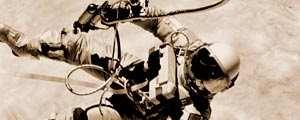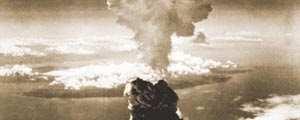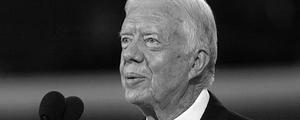U.S. President Dwight D. Eisenhower enjoyed a soaring 68% job approval rating in February 1954 at the start of his second year on the job, perhaps partly because he was the type of leader onto whom Americans could project their own views. When asked if Eisenhower was more of a liberal or a conservative, 54% of self-described liberals said he was a liberal, while 71% of self-described conservatives saw him as a conservative.
| U.S. adults | Liberals | Conservatives | |||||||||||||||||||||||||||||||||||||||||||||||||||||||||||||||||||||||||||||||||||||||||||||||||
|---|---|---|---|---|---|---|---|---|---|---|---|---|---|---|---|---|---|---|---|---|---|---|---|---|---|---|---|---|---|---|---|---|---|---|---|---|---|---|---|---|---|---|---|---|---|---|---|---|---|---|---|---|---|---|---|---|---|---|---|---|---|---|---|---|---|---|---|---|---|---|---|---|---|---|---|---|---|---|---|---|---|---|---|---|---|---|---|---|---|---|---|---|---|---|---|---|---|---|---|
| % | % | % | |||||||||||||||||||||||||||||||||||||||||||||||||||||||||||||||||||||||||||||||||||||||||||||||||
| More of a liberal | 26 | 54 | 14 | ||||||||||||||||||||||||||||||||||||||||||||||||||||||||||||||||||||||||||||||||||||||||||||||||
| More of a conservative | 41 | 34 | 71 | ||||||||||||||||||||||||||||||||||||||||||||||||||||||||||||||||||||||||||||||||||||||||||||||||
| Neither/Not sure | 33 | 12 | 15 | ||||||||||||||||||||||||||||||||||||||||||||||||||||||||||||||||||||||||||||||||||||||||||||||||
| Gallup, Feb. 24-March 2, 1954 | |||||||||||||||||||||||||||||||||||||||||||||||||||||||||||||||||||||||||||||||||||||||||||||||||||
In reporting these findings, George Gallup wrote that the pattern was "a politically significant key to President Eisenhower's great popularity among the nation's voters."
Americans' close ideological identification with Eisenhower was understandable inasmuch as Eisenhower himself embraced both the liberal and conservative labels. Speaking to Republicans at a Lincoln Day dinner in Washington, D.C., on Feb. 5, 1954, he said the following about the nation's first Republican president:
So that here we have, really, the compound, the overall philosophy of Lincoln: In all those things which deal with people, be liberal, be human. In all those things which deal with the people's money or their economy, or their form of government, be conservative -- and don't be afraid to use the word.
And so today, Republicans come forward with programs in which there are such words as "balanced budgets," and "cutting expenditures," and all the kind of thing that means this economy must be conservative, it must be solvent.
But they also come forward and say we are concerned with every American's health, with a decent house for him, we are concerned that he will have a chance for health, and his children for education. We are going to see that he has power available to him. We are going to see that everything takes place that will enrich his life and let him as an individual, hardworking American citizen, have full opportunity to do for his children and his family what any decent American should want to do.
Public confusion about Eisenhower's political ideology began shortly after the war, when both parties were courting him to run for president. In 1947, Gallup found Americans split over which party then-Gen. Eisenhower would choose: 29% said he would run as a Democrat, 29% as a Republican and 42% were unsure. Though that eventually was settled, Eisenhower's Lincoln Day quote illustrates that he remained politically ambidextrous even while serving as a popular Republican president, maintaining solidly positive approval ratings throughout his two-term presidency.
These data can be found in Gallup Analytics.
Read more from the Gallup Vault.



